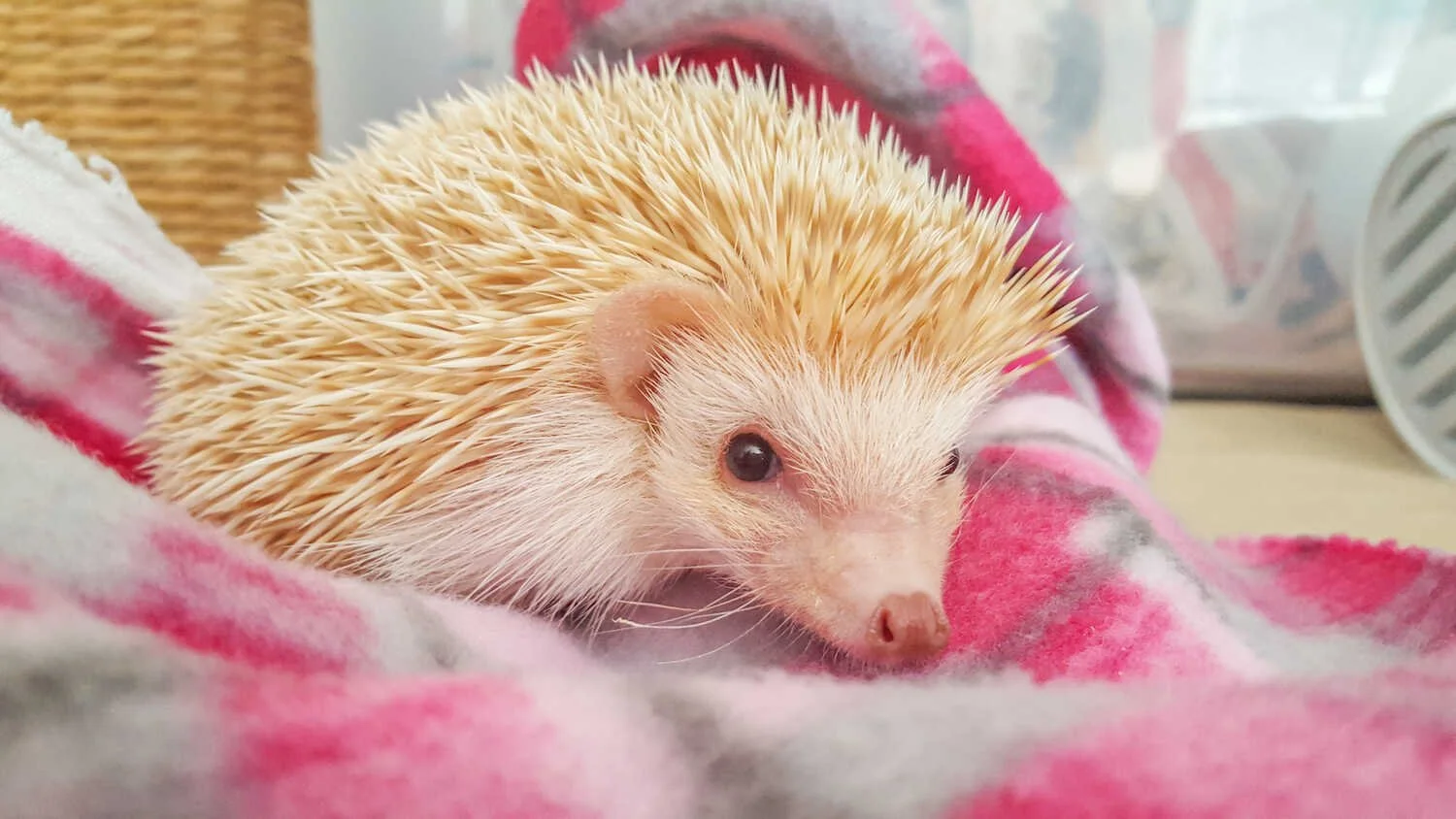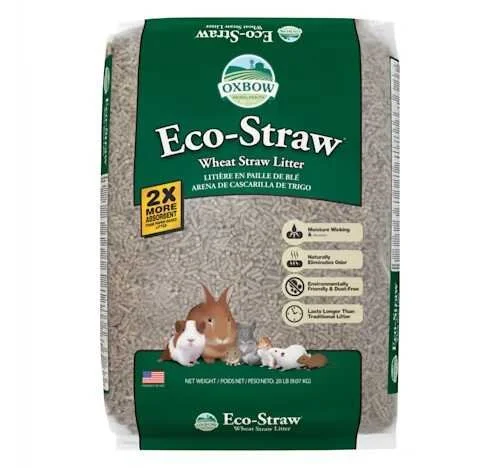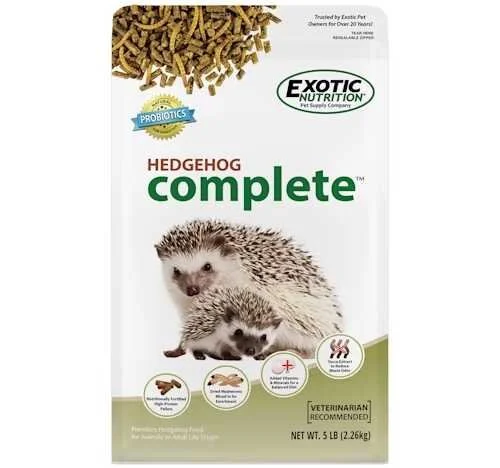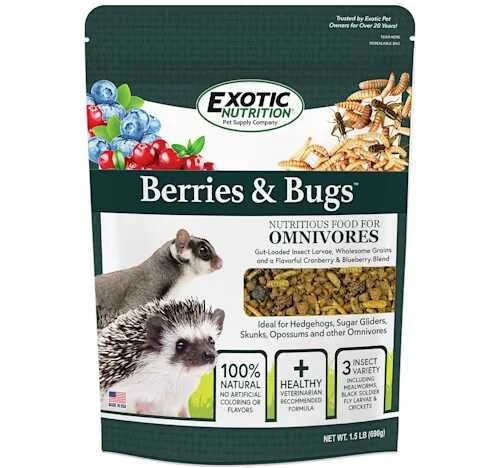Complete Guide to Owning a Pet Hedgehog
Hedgehogs are charming and fascinating creatures that make unique and rewarding pets. The photos in this blog post are of Melon, my sister’s blonde African Pygmy Hedgehog. Whenever I visit her in Austin, I get to spend some quality time with this adorable little pincushion.
In this article, we will provide a complete guide to owning a pet hedgehog, including information on their breeds, lifespan, care, feeding, supplies needed and more. To be a responsible and knowledgeable pet owner, it’s important to learn all about what goes into owning your own pet hedgehog.
Why Hedgehogs Make Great Pets
Hedgehogs are relatively low-maintenance, and their spiky outer layer really gives them some pet pizzaz. Hedgehogs are popular pets due to their cute appearance and docile nature. They are quiet animals that do not require a lot of space and are relatively easy to take care of. In some ways, hedgehogs are similar to having a guinea pig or rabbit, but a little bit more exotic and whimsical.
Common Breeds of Hedgehogs for Pets
Hedgehogs are found throughout Europe, Asia, Africa, and New Zealand. While there are several breeds of hedgehogs, the African Pygmy Hedgehog is the most popular and commonly kept as a pet due to its friendly and docile nature. They are small, weighing just a couple pounds, and are 5-8 inches in length.
Other breeds of hedgehogs that are sometimes kept as pets include the European Hedgehog and the Four-Toed Hedgehog. The European Hedgehog is the most common breed found in the wild and is native to Europe and parts of Asia. They are larger than African Pygmy Hedgehogs. The Four-Toed Hedgehog is native to central and eastern Africa and is slightly smaller than the African Pygmy Hedgehog. It is important to research the specific needs and temperament of each breed before deciding on a pet hedgehog.
How Long Do Hedgehogs Live
There are 17 species of hedgehogs found in Europe, Asia, and Africa, each with varying lifespans. For example, the European hedgehog has a lifespan of up to 8 years in the wild, while the long-eared hedgehog can live up to 7 years. In captivity, hedgehogs typically live for four to six years, although some can live up to ten years with proper care. A hedgehog's lifespan can vary depending on factors such as genetics, diet, and environmental conditions.
As a responsible pet owner, you need to be aware that you are committing to caring for this animal for the entirety of its life. It would be unethical to get a pet hedgehog and decide after a short period of time that you no longer want it. Plan on caring for this pet for a minimum 6 years.
How Big Do Hedgehogs Get?
Full-grown hedgehogs are small animals, usually around the size of a guinea pig or a rabbit. For example, the European hedgehog (also known as the common hedgehog) is larger than the African Pygmy Hedgehog, weighing between 2 - 3 pounds and measuring up to 12 inches in length. The African Pygmy Hedgehog is a small species of hedgehog, and typically grows to be around 6-10 inches in length, with a weight of 1-2 pounds when fully grown.
Baby hedgehogs, also known as hoglets, reach full maturity at around 6-8 months of age. At this age, they are considered sexually mature and can start breeding. However, hedgehogs can continue to grow and develop throughout their lifespan, with some individuals reaching their maximum size and weight at around 18 months to 2 years of age.
It's important to note that hedgehogs are not fully grown and developed when they are sold as pets, which is usually at around 6-8 weeks of age. They still have a lot of growing and development to do, so it's important to provide them with appropriate care and nutrition to support their growth and overall health.
Hedgehog Enclosure and Supplies
Hedgehogs require a secure and comfortable enclosure to live in. Their home should be large enough for them to move around, but not too large that they become stressed. A minimum of 4 square feet of living space is recommended for one hedgehog. They require a running wheel to provide exercise and mental stimulation. The wheel should be solid, without any gaps or rungs that could trap their feet or legs.
The enclosure should have a solid bottom to prevent injuries to their feet. It's also important to provide a shallow dish for food and water, as well as a heat source such as a ceramic heat emitter or a heat lamp to maintain a consistent temperature in their enclosure. Additionally, hedgehogs need toys and objects to play with and climb on, such as tunnels, ramps, and branches.
Good Age Range for Children to Own a Pet Hedgehog
Hedgehogs can make great pets for children, but they require a lot of care and attention. Children should be at least six years old to handle hedgehogs, as they are fragile and can be easily injured.
Parents should supervise interactions between their children and the hedgehog to ensure the safety of both the child and the pet. Hedgehogs can be shy at first but can become affectionate with their owners over time.
Regular handling and bonding activities, such as offering treats and spending time with your hedgehog, can help build a strong bond between you and your pet.
All About a Hedgehog’s Diet
Hedgehogs are omnivores and require a balanced diet of protein and vegetables. There’s a variety of foods you can feed your pet hedgehog, and also some to avoid.
Where to Find Hedgehog Food
The easiest way to feed your hedgehog is to buy specialty formulated hedgehog food. This way you can be sure that they are getting all the required and balanced nutrition.
Buy hedgehog food online:
Cat Food for Hedgehogs
High-quality, wet or dry cat food is a good source of protein for hedgehogs. Look for cat food with a minimum of 30% protein, and avoid foods with a lot of fillers, such as corn or wheat.
It's important to note that cat food should not make up the majority of a hedgehog's diet, as hedgehogs also require a variety of other foods such as insects, fruits, and vegetables to meet their nutritional needs. Additionally, some hedgehogs may have specific dietary requirements or sensitivities, so it's important to consult with a veterinarian or an experienced hedgehog owner for advice on feeding your pet hedgehog.
Additional Sources of Protein for Your Hedgehog
Protein is an important nutrient for hedgehogs, as it supports muscle growth and repair, and helps maintain healthy skin and fur. Here are some protein sources that are suitable for hedgehogs:
Insects: Hedgehogs are natural insectivores and enjoy eating a variety of insects, including crickets, mealworms, waxworms, and earthworms. Insects are a great source of protein and other nutrients that hedgehogs need. Avoid feeding them insects found in the wild, as they may contain parasites or harmful chemicals.
Lean meats: Cooked lean meats such as chicken, turkey, and beef can also be fed to hedgehogs in moderation. Make sure to remove any bones and skin, and avoid feeding fatty meats.
Eggs: Boiled or scrambled eggs can be fed to hedgehogs in moderation, as they are a good source of protein.
Mealworms: Mealworms are a popular choice for hedgehog owners, as they are high in protein and easy to find in pet stores.
Fruits and Vegetables to Feed Your Hedgehog
Feeding your hedgehog a variety of fruits and vegetables is important to provide them with the necessary vitamins, minerals, and fiber they need. Here are some examples of fruits and vegetables that are safe for hedgehogs to eat:
Apples (without seeds)
Bananas
Blueberries
Carrots
Green beans
Peas
Raspberries
Squash
Sweet potatoes
Watermelon
When feeding fruits and vegetables to your hedgehog, it's important to wash them thoroughly and cut them into small pieces to prevent choking. You should also introduce new foods gradually to avoid digestive upset.
Additionally, fruits and vegetables should make up only a small portion of your hedgehog's diet, with the majority consisting of protein sources such as insects, lean meats, and high-quality cat food.
Always Provide Fresh Water
Ensuring that your pets always have access to clean water at all times is an obvious statement, but worth stating nonetheless. You can purchase a small pet water bottle dispenser, or opt for a shallow water bowl.
Foods You Should Never Feed Your Hedgehog
It's important to note that some fruits and vegetables, such as citrus fruits and onions, can be harmful to hedgehogs and should be avoided. Also, fatty meats are not best for hedgehogs, lean protein is best.
Avoid Over-Feeding Your Pet Hedgehog
It's important to monitor your hedgehog's weight and adjust their diet as needed. Overfeeding can lead to obesity, which can contribute to a variety of health problems. A lean and active hedgehog is a happy hedgehog!
The Basics of Hedgehog Care
Hedgehogs require a moderate amount of care. They need their enclosure cleaned regularly, and their nails trimmed every 2-3 weeks. Their teeth need to be checked regularly, and they may require a bath to keep their quills clean and prevent skin issues. Hedgehogs are sensitive to temperature changes and require a warm environment to thrive. Their enclosure should be kept between 72-80°F and should not be placed in direct sunlight or near drafts.
Socializing Your Pet Hedgehog
It's essential to socialize your hedgehog to become comfortable with handling and human interaction. Start by handling them for short periods of time each day and gradually increase the duration. Offer treats and positive reinforcement to encourage good behavior. Hedgehogs enjoy toys that allow them to climb, explore, and forage. Examples include tunnels, wheels, and puzzles. They also enjoy digging in shallow containers filled with non-toxic soil or bedding. However, hedgehogs are nocturnal, which means they are most active at night.
Having Multiple Hedgehogs
Hedgehogs can sometimes live together in the same enclosure, but it's important to take certain factors into consideration before deciding to keep multiple hedgehogs together:
Gender: It's generally not recommended to keep male and female hedgehogs together, as they can breed and produce offspring. Keeping same-sex pairs is usually the best option.
Age: It's important to introduce hedgehogs of similar age to each other, as younger hedgehogs may be intimidated or bullied by older ones.
Temperament: Hedgehogs have individual personalities, and some may not get along with others. It's important to observe your hedgehogs' behavior towards each other before deciding to keep them together.
Space: Multiple hedgehogs will require a larger enclosure than a single hedgehog. The enclosure should have plenty of hiding spots, food and water dishes, and space for each hedgehog to move around freely.
Health: Before introducing hedgehogs to each other, it's important to ensure that each one is healthy and free from any illnesses that could be transmitted to others.
If you decide to keep multiple hedgehogs together, it's important to monitor their behavior and ensure that each hedgehog is getting enough food, water, and space. It's also a good idea to provide separate food and water dishes to prevent competition and to clean the enclosure regularly to prevent the buildup of waste and bacteria.
Best Place to Put the Hedgehog Enclosure in Your Home
It is important to keep your hedgehog safe in their enclosure. Hedgehogs are nocturnal and require a dark and quiet environment to sleep in. Avoid placing their enclosure in a high-traffic area or where there is a lot of noise. Also, be cautious with any potential hazards in the enclosure such as sharp objects, toxic plants, or other pets that may harm the hedgehog. It is recommended to check the enclosure regularly to ensure that it is secure and free of any hazards.
Common Hedgehog Illness and Disease
In addition to keeping their enclosure clean and providing a healthy diet, it's important to handle your hedgehog gently and provide plenty of opportunities for exercise and play.
Stress and lack of socialization can also contribute to health problems in hedgehogs. By taking good care of your hedgehog and staying vigilant for signs of illness, you can help keep your pet healthy and happy.
There are several common illnesses that can affect hedgehogs, including:
Respiratory infections: Hedgehogs can develop respiratory infections that may cause symptoms such as sneezing, coughing, difficulty breathing, and lethargy. These infections can be caused by bacteria, viruses, or fungi. Treatment may involve antibiotics, nebulizer treatments, or other medications.
Skin problems: Hedgehogs are prone to skin issues such as mites, fungal infections, and dermatitis. Signs of skin problems can include scabs, hair loss, redness, and excessive scratching. Regular grooming and bathing can help prevent skin issues.
Dental problems: Hedgehogs can develop dental problems such as overgrown teeth, abscesses, and infections. Signs of dental issues can include drooling, reluctance to eat, and weight loss.
Obesity: Hedgehogs are at risk of becoming overweight or obese, which can lead to health problems such as diabetes, heart disease, and joint problems.
Wobbly Hedgehog Syndrome: This is a neurological disorder that affects hedgehogs and causes progressive loss of muscle control and coordination. Symptoms can include difficulty walking, trembling, and loss of balance. It's important to take your hedgehog to a veterinarian who specializes in exotic pets if you notice any signs of illness.
Urinary tract infections (UTI): My sister’s hedgehog Melon got a UTI, so we know firsthand how stressful this can be on the animal and owner.
Urinary tract infections are not uncommon in hedgehogs, and can occur due to a variety of reasons, including poor hygiene, diet, and stress. Signs of UTI in hedgehogs may include:
Straining to urinate
Blood in the urine
Decreased appetite
Lethargy
Dehydration
Discomfort while urinating
Foul-smelling urine
If you suspect that your hedgehog has a UTI, it is important to seek veterinary care right away. Your veterinarian may perform a physical exam, urinalysis, and/or culture and sensitivity testing to determine the underlying cause of the infection. Treatment typically involves antibiotics and supportive care to alleviate any symptoms and prevent complications. Additionally, it is important to maintain proper hygiene and cleanliness of the hedgehog's environment to prevent the occurrence of UTIs.
How to Find a Vet for Your Pet Hedgehog
Finding a veterinarian who is experienced in treating hedgehogs can be challenging, as they are considered exotic pets. Ask for recommendations from other hedgehog owners, or do research online to find a qualified veterinarian in your area.
Using hedgehog community forums can help you find vet recommendations in your area:
https://www.hedgehogcentral.com/forums/
https://www.chins-n-hedgies.com/forums/hedgehog-general-discussion-forum.57/
https://www.hedgehogstreet.org/forums/topic/this-is-the-nicest-forum-on-the-internet/
https://www.reddit.com/r/Hedgehog/
When you find a veterinarian, schedule a check-up to ensure your hedgehog is healthy and to establish a relationship with the veterinarian. Bring a list of questions to ask the veterinarian about hedgehog care, and discuss any concerns you may have.
Where to find a pet Hedgehog?
If you're interested in finding a pet hedgehog, there are a few options to consider. You can start by checking with your local pet store, as some stores carry hedgehogs. Another option is to search for a reputable breeder. A breeder will be able to provide you with a healthy, well-socialized hedgehog and can offer advice on their care.
You can also search for hedgehogs for adoption through local animal rescues and online adoption sites. When looking for a pet hedgehog, it's important to research the specific needs of the breed and ensure that you have the resources and commitment to care for them properly.
Also, consult the hedgehog forum list above to find reputable breeders in your area.
How Much to Pet Hedgehogs Cost?
The cost of a pet hedgehog can vary depending on several factors, such as the breeder, location, and availability. On average, pet hedgehogs can cost anywhere from $100 to $300. However, some breeders may charge more for specific colors or patterns, such as albino or pinto hedgehogs.
Additionally, the cost of owning a hedgehog goes beyond the initial purchase price, as you will need to consider ongoing expenses such as food, bedding, toys, and veterinary care. It's important to do your research and budget accordingly before deciding to bring a hedgehog into your home as a pet.
Safety Rules for Owning a Pet Hedgehog
Hedgehogs have sharp quills, and while they may not be aggressive, they may use their quills to defend themselves. Always handle them carefully and avoid sudden movements. Ensure children are supervised when handling hedgehogs to avoid injuries.
Do Hedgehogs Bite?
Hedgehogs are not aggressive, but they may bite if they feel threatened or uncomfortable. It's important to socialize your hedgehog properly to minimize the risk of biting. Avoid handling them if they are sleepy or if they are showing signs of stress or discomfort, such as hissing or curling up into a ball.
If your hedgehog does bite, wash the wound thoroughly and seek medical attention if necessary. If the bite was caused by a wild hedgehog, it's important to seek medical attention immediately, as wild hedgehogs may carry diseases.
In Conclusion…
Hedgehogs can make wonderful pets for those willing to provide them with the proper care and attention. They are unique and fascinating animals that require a moderate amount of care but can provide a rewarding and enriching experience for their owners. With the information provided in this guide, you can confidently take care of your pet hedgehog and enjoy their company for years to come.
Shop Hedgehog Pet Essentials:
Make your hedgehog’s home comfy and cozy with fresh and easy to clean bedding and litter.
A hedgehog’s gotta eat right?! Shop all kinds of complete hedgehog food blends for a nutritious diet.
Hedgehogs love to munch on crunchy free-dried omnivore snacks such as mealworms, gut loaded insect larva, grains and berries.











